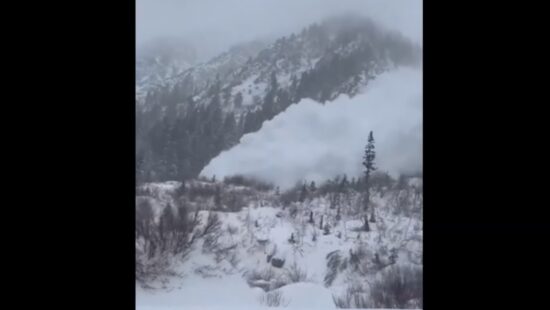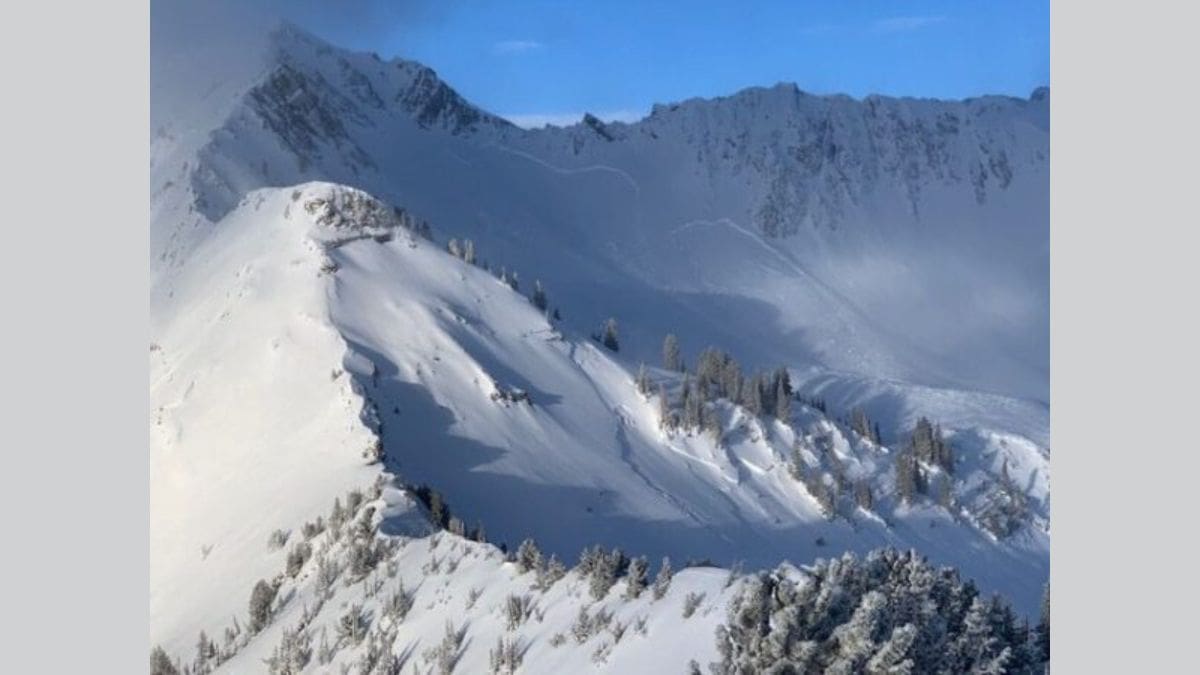Snow
Move over Arches, the Cottonwoods attract double the visitors every year
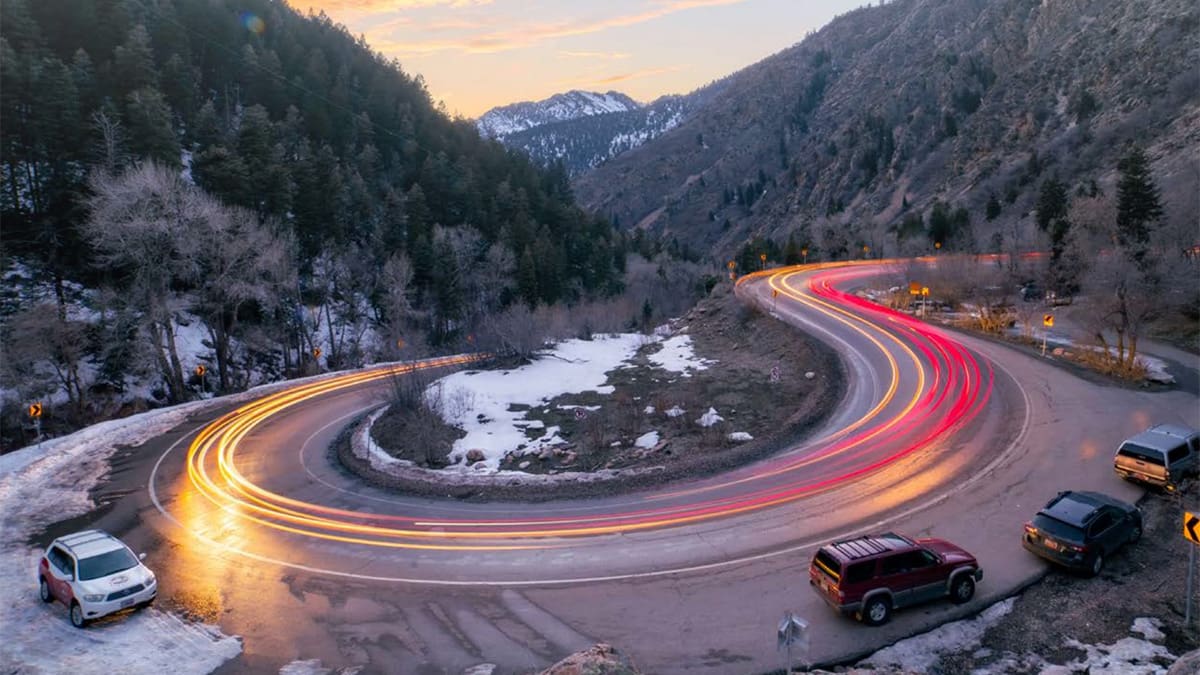
Car lights blur around an iconic curve in Big Cottonwood Canyon. A recent report shows the Wasatch Canyons get twice as many visitors annually as Arches National Park. Photo: Outdoor Recreation Use of the Central Wasatch
LITTLE AND BIG COTTONWOOD CANYON, Utah – The outdoor recreation opportunities offered in the canyons of the Central Wasatch are some of the most iconic in Utah. In summer, visitors enjoy boundless opportunities to escape the city heat and immerse themselves in nature amid an almost surreal mountain landscape of dramatic, rocky peaks and wildflower-specked meadows. In winter, people flock to the same mountains to ski deep powder in legendary terrain.
It is no secret to that Little and Big Cottonwood Canyons have also suffered from the relatively recent massive flocking to these areas, which has put pressure on infrastructure and forced outdoor-industry leaders and transportation officials to solve a pressing dilemma about how to manage crowds and traffic in the canyons. What you might not know though is this: The Cottonwoods receive close to two times the amount of visitors per year as Arches National Park.
Yes, that is correct; the canyons of the Central Wasatch (including Mill Creek Canyon) receive roughly 3.2 million visits a year. In comparison, Arches National Park, which is nearly equal in size, receives roughly 1.8 million visitors per year.
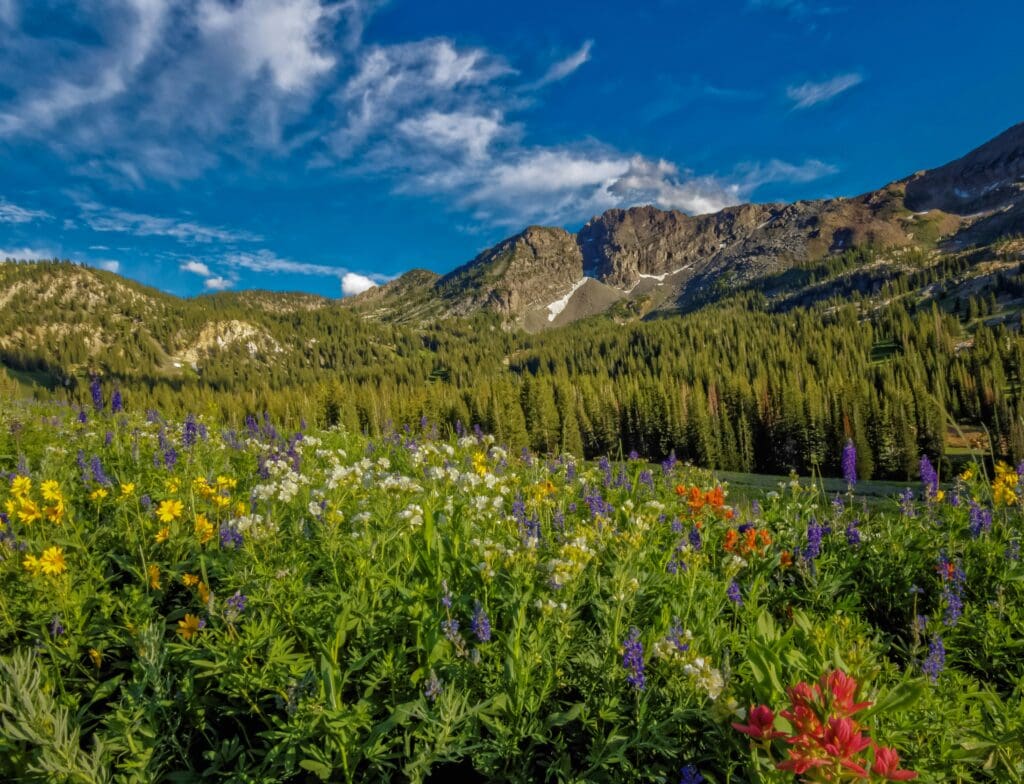
The numbers come from a recent study conducted by The Institute of Outdoor Recreation and Tourism at Utah State University, which details the findings of a year-long survey effort designed to better understand the visitors and visitor experiences offered within Big and Little Cottonwood Canyons and Millcreek Canyon.
Results also show visitors frequently recreate in the canyons, on average, once per week. Additionally, perceived crowding across all site types is generally low – a surprising statistic for those who sit in hours long traffic, particularly in winter, to access resorts like Alta and Brighton. The report says this likely reflects people’s expectations for the kinds of sites they visit, the types of activities they participate in, and the capacity of the area to accommodate more visitation.
These data and findings, researchers say, serve as a base of information that can be used to inform the decisions of the USDA Forest Service, the many entities represented on the Central Wasatch Commission, and other stakeholders interested in the future of outdoor recreation in the Salt Lake Valley.
Skiing is the most popular outdoor activity in both Big and Little Cottonwood Canyons. In Big Cottonwood Canyon, there are nearly one million national forest visits (985,704) for skiing, and Little Cottonwood Canyon sees a similar number (955,573). Skiing represents 67.9% of all recreational visits in Big Cottonwood Canyon and 72.8% in Little Cottonwood Canyon.
In comparison, hiking and walking is also a popular activity in these canyons, with over 507,000 visits in Big Cottonwood Canyon and over 333,000 in Little Cottonwood Canyon.
The Uinta-Wasatch-Cache National Forest, which spans a large area in northern Utah and extends into parts of southwestern Wyoming and southeastern Idaho. In Utah, the Uinta-Wasatch-Cache National Forest covers several key regions, including the Wasatch Range, the Uinta mountains, Cache Valley as well as areas surrounding Salt Lake City, Ogden and Provo.
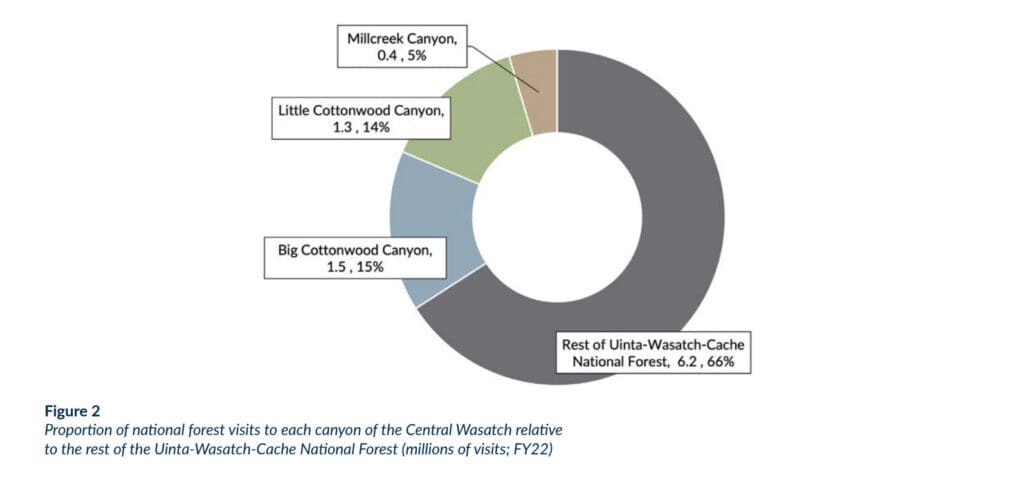
Putting the Cottonwood’s numbers into perspective, on a whole the study says the Uinta-Wasatch-Cache National Forest received roughly 9.4 million visits between October 1, 2021 and September 30, 2022. Of those visits, roughly 3.2 million occurred within the Central Wasatch, which accounts for slightly more than one-third of all forest visits across the entirety of the UintaWasatch-Cache during the same time. Big Cottonwood Canyon was the most heavily used canyon within the Central Wasatch, receiving 1.45 million forest visits. Little Cottonwood Canyon received nearly as many recreational visits, 1.31 million. Millcreek Canyon received 434 thousand recreational forest visits.















